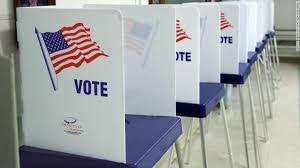
Election night produced much excitement and many surprises. Late into the evening it was clear that a Blue Wave had indeed swept across the United States giving Democrats control of the U.S. House of Representatives for the first time in eight years with a 230-205 margin.
The midterm elections showed a significant increase in engagement among women, young voters and the LGBTQ community. The participation of these newly energized voters gave women and LGBTQ candidates victories in 110 congressional races, a record number. More could be added as a few congressional races in Southern California were still too close to call on Wednesday.
Locally, the biggest surprise was Beto O’Rourke’s remarkable race against Senate incumbent Ted Cruz. O’Rourke lost by only 200,000 votes out of more than eight million votes cast. Cruz’ victory was credited to his rural base in counties of north and west Texas. O’Rourke outperformed Cruz in every large metro area, with Beto’s win in Houston, Cruz’s hometown, was the biggest boost for Beto supporters.
The Blue Wave did not materialize in the U.S. Senate races, and Democrats actually lost a few Senate seats. While not all the votes have been counted, the U.S. Senate, now has 45 Democrats and 51 Republicans. However, there is hope that gains made in local races will help Democrats in 2020. Exit polls across America showed an approval rate for Democrats at 41% versus 37% for Republicans.
In Texas, early voters went to the polls in record numbers with nearly five million votes cast. The huge turnout of early voters made the midterm elections different from any other. The early vote ballot count in every large metro area more than doubled from the previous midterm election of 2016. The total early votes in Bexar County, 414,192, amounted to a nearly 60% increase over the 2016 midterm elections.
According to the Center for Responsive Politics, the 2018 midterm elections may be, with over $5 billion of spending, the most expensive midterm contest in history. Not only was it expensive, it was tumultuous. President Trump, The New York Times noted, “delivered slashing attacks on immigration, railing against birthright citizenship, linking immigration without evidence to violent crime, and amplifying debunked conspiracy theories about a migrant caravan in Latin America.”
For many voters, the choices seemed clearer than in previous midterm elections. The New York Times commented two days before Tuesday’s vote that “The run-up to the election, widely seen as a referendum on Mr. Trump’s divisive persona and hard-line policy agenda, has revealed deep strains in the president’s political coalition and left him confined to campaign in a narrow band of conservative communities.”
On the eve of Tuesday’s elections, The Washington Post concluded that President Trump’s remarks the previous day summed up his overall midterm political strategy—fear and loathing. The Post noted that President Trump “delivered a dark and sometimes fact-challenged message on immigration…digging deep into the tactics he used two years ago.” He warned his audience: “If you want more caravans, if you want more crime, vote Democrat tomorrow.”
In 2016, President Trump promised to build a wall between the United States and Mexico. Instead he built a wall between himself and political moderates and independents. The millions of Obama voters who shifted to Mr. Trump in 2016 saw in the midterms an opportunity to shift back to the Democrat fold. This was especially true of white educated suburban women who previously leaned toward the GOP candidates.
More than 113 million voters turned out for the midterm elections, significantly higher than the 83 million that voted in midterm elections in 2014. This year’s election revealed that the political divisions between Democrats and Republicans are sharper than ever. That may spell problems for setting a legislative agenda that can address America’s most pressing problems.
In exits polls, American voters cited health policies as their number one concern. While some Presidents have governed efficiency with divided legislative bodies, it appears that passing important legislation will be more difficult if the present President continues his toxic rhetoric against opponents.








